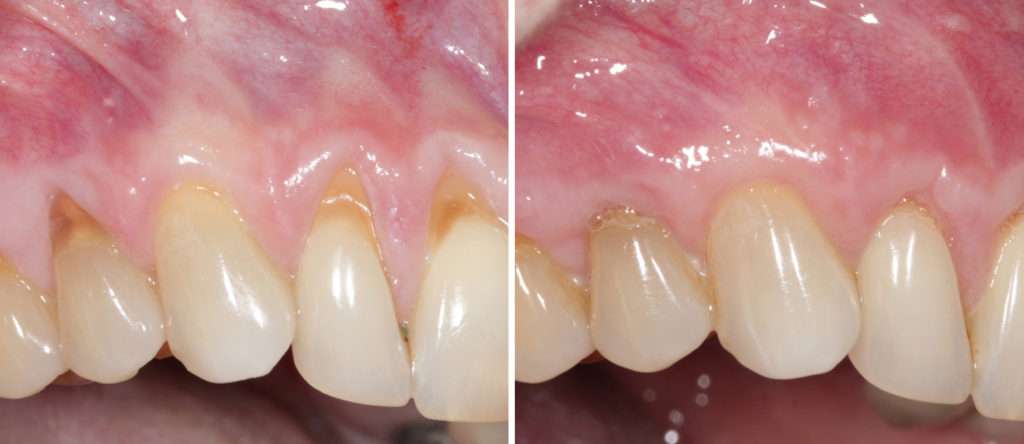How Oral Bacteria Affect Your Body and What You Can Do About It
How often do you think about the bacteria in your mouth? Most people don’t, until a dental issue forces them to. But the truth is, the health of your mouth plays a much larger role in your overall wellness than many realize.
Even with regular brushing, flossing, and cleanings, your mouth is home to more than 700 different species of bacteria. While many are harmless and part of your body’s natural microbiome, others can trigger inflammation, damage gum tissue, and contribute to more serious problems like periodontal disease.
When these harmful bacteria enter your bloodstream through inflamed or infected gums, they don’t stop at your teeth, they can affect your heart, lungs, immune system, and even your brain. From cardiovascular disease and diabetes to rheumatoid arthritis and Alzheimer’s, researchers continue to uncover how oral bacteria may contribute to chronic illness.
At the CENTER for Advanced Periodontal & Implant Therapy in Los Angeles, we focus on treating gum disease at its source, the bacteria, before it has the chance to do further damage. This article explores how oral bacteria impact your body and what you can do to protect your health long-term.
How Harmful Oral Bacteria Spread Beyond the Mouth
Oral bacteria become dangerous when they invade gum tissue, enter the bloodstream, and trigger chronic inflammation. This process often starts with gingivitis or periodontitis common conditions that are easy to overlook but carry significant health risks.
Once in the bloodstream, bacteria and their toxins can disrupt immune function and contribute to a wide range of diseases.
For example, some research suggests oral bacteria may influence the development or progression of certain tumors. Read about the link between oral bacteria and tumor activity.
What Are the Most Harmful Oral Bacteria?
Not all bacteria are bad, but some species in your mouth are known troublemakers. These pathogens are often found in advanced gum disease and have been linked to systemic inflammation and disease.
Porphyromonas gingivalis – Triggers chronic inflammation and is linked to Alzheimer’s, cardiovascular disease, and immune disruption.
Fusobacterium nucleatum – Often associated with colorectal cancer; may suppress immune cells in tumor environments.
Treponema denticola – Known to damage gum tissue and disrupt immune signaling.
Understanding which bacteria are present in your mouth, and how they behave, can help guide treatment. That’s why we offer microbial testing to target therapy at the root.
Diseases Linked to Oral Bacteria
Chronic oral bacteria have been associated with increased risk for:
Cardiovascular disease
Diabetes
Rheumatoid arthritis
Chronic obstructive pulmonary disease (COPD)
Alzheimer’s disease
Gastrointestinal disorders
Osteoporosis
Kidney disease
Cancer
Preterm birth and low birth weight
To explore how gum disease and inflammation affect your heart, blood sugar, and immune health, read our full article on how oral health affects overall health.
One peer-reviewed study even found that certain strains of oral bacteria may inhibit immune responses in colorectal tumors, potentially allowing cancer cells to evade detection.
See how periodontal pathogens may impact colorectal tumor immunity.
The takeaway? Oral bacteria don’t stay in your mouth and they don’t work in isolation. They influence your body through inflammation, immune disruption, and microbial imbalance.
Can Oral Bacteria Be Spread Between People?
Yes. Oral bacteria can be transmitted through saliva, meaning that close contact like kissing or sharing utensils may pass certain strains between individuals.
If you have a partner or child with gum disease, this doesn’t guarantee transmission, but it does increase the risk. Explore how oral bacteria can be contagious.
Signs That Oral Bacteria May Be Causing Gum Disease
Many people don’t know they have gum disease until it progresses. Watch for:
Bleeding when brushing or flossing
Red, swollen, or tender gums
Persistent bad breath
Receding gumlines
Loose teeth or changes in bite
Bad taste that doesn’t go away
If you notice these signs, it’s important to schedule a periodontal evaluation.
Treating Harmful Oral Bacteria at the Source
Good daily hygiene is essential brushing twice a day, flossing, and using an antimicrobial rinse. But if bacteria have already caused gum disease, professional treatment is key.
Our practice offers:
Periodontal scaling and root planing to remove deep bacterial deposits
Microbial sampling to identify specific bacteria and tailor treatment
Our practice offers advanced techniques like the Bonner Method, which uses platelet-rich biologics and minimally invasive protocols to promote healing, reduce inflammation, and regenerate healthy gum tissue.
These treatments not only restore gum health but also help prevent the spread of bacteria to other parts of the body.
“Treating gum disease isn’t just about saving teeth, it’s about reducing the bacterial and inflammatory burden that affects the entire body,” says Dr. Aalam, board-certified periodontist at the CENTER for Advanced Periodontal & Implant Therapy in Los Angeles.
Frequently Asked Questions
Can bad oral bacteria make you sick?
Yes. When harmful bacteria enter the bloodstream through inflamed gums, they can contribute to chronic inflammation and increase your risk for conditions like heart disease, diabetes, and respiratory illness.
How do I know if I have too much bad bacteria in my mouth?
Signs include persistent bad breath, bleeding gums, gum recession, or a bad taste in your mouth. A microbial test can also identify harmful strains.
Can oral bacteria affect people with autoimmune conditions?
Yes. People with autoimmune or inflammatory conditions like rheumatoid arthritis or lupus may be more vulnerable to systemic effects of oral bacteria.
Take Control of Your Health Starting with Your Mouth
The impact of oral bacteria goes far beyond cavities or cosmetic concerns. Whether you’re concerned about inflammation, systemic risk, or just want to maintain a healthy smile, treating gum disease early can make a measurable difference in your overall wellness.
Contact the CENTER for Advanced Periodontal & Implant Therapy in Los Angeles to schedule a comprehensive periodontal evaluation. We’ll help you understand your risk factors and provide personalized care to restore oral and systemic health.
You May Also Like...
How Oral Health Affects Your Overall Health
How Oral Health Impacts the Entire Body It’s easy to think of oral health as something separate from the rest of your...
Improve Your Smile, Improve Your Oral Health: Why You Should Consider Seeing a Periodontist for Cosmetic Procedures
When it comes to enhancing your smile, today's dental patients have a wealth of options. Choices, like in-office tooth...
When Should You See a Periodontist?
Often, people confuse the work of a dentist with that of a periodontist. If you’ve had the occasion to visit both,...






